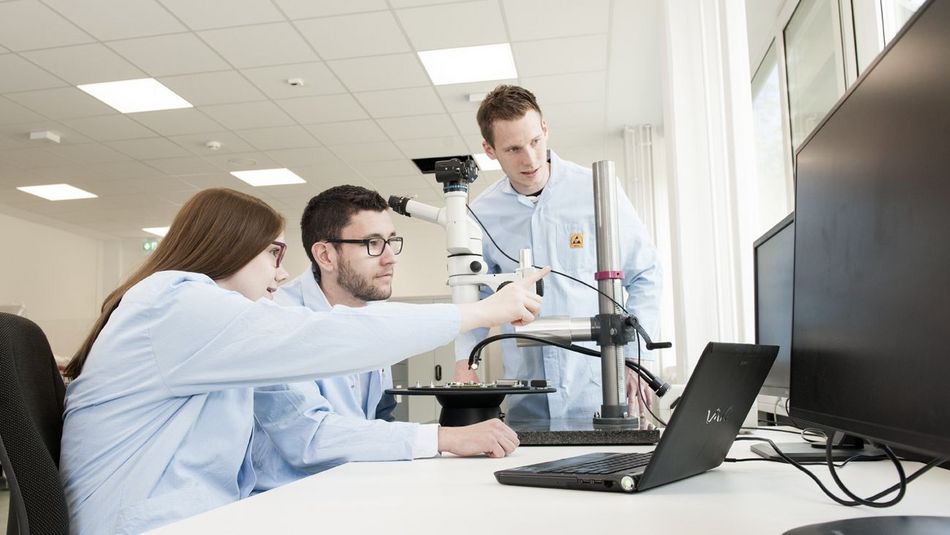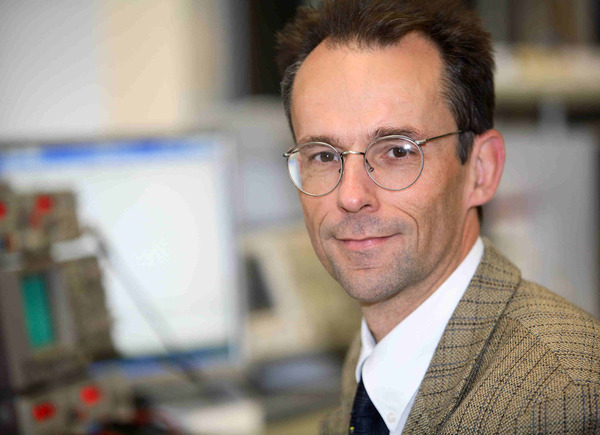
Energy transition, electromobility, medical technology, Industry 4.0 - hardly any of our global future topics can be managed without the developments of modern electrical engineering. Well-trained electrical engineers continue to drive progress and growth and are sought-after specialists in many industries. They are especially needed where practical implementation skills are required in addition to solid theoretical knowledge of electrical engineering.
This is precisely where the Master's programme in Electrical Engineering comes in. It qualifies students for leadership and management tasks in the technical environment in industry, service sector or higher public service. In addition, it opens up the possibility of further scientific qualification with the goal of a doctorate, which can be carried out at a university or within the framework of a cooperative procedure with us at Trier University of Applied Sciences.
Goal:
Qualification for leadership and management tasks in a technical environment
Degree:
Master of Science (M.Sc.)
Start of study:
Summer or winter semester
Standard period of study:
3 semesters (90 ECTS)
possible with a 6- or 7-semester first degree (see admission requirements)
Admission restriction (N.C.):
None
Study location:
Main Campus Trier
Internationality:
Semester abroad (optional)
Tuition fee:
None, but semester fee (including semester ticket)
Areas of specialisation:
Automation & Energy | Information Technology & Electronics | Medical Engineering | Electromobility |Internet of Things - Industry 4.0
The scientifically oriented master's programme in electrical engineering offers all qualified bachelor's graduates the opportunity to earn a Master of Science degree in three semesters. During these three semesters, students deepen their specialist knowledge in their chosen focus of "Automation and Energy", "Information Technology and Electronics" or "Medical Technology". In addition, they learn to deal scientifically with problems and to present results.
Students who have completed a six-semester bachelor's degree programme can acquire an additional 30 ECTS within the framework of an enrollment catalog up to the registration of the master's thesis in order to achieve the 300 ECTS required for a master's degree. This may extend the duration of study.
Within the framework of project and group work, students work on research-relevant tasks with a very good supervision ratio. External theses and semesters abroad are encouraged. The master's thesis in the third semester concludes the programme.
Due to the intensive relationships with universities and research institutions, an above-average proportion of graduates of the master's programme go on to pursue a doctorate.
The Master's programme "Electrical Engineering" is open to applicants who have obtained a professionally qualifying university degree in electrical engineering or a related field of study with an overall grade of usually at least 2.5. Admission also requires proof of sufficient German language skills. In addition, you should have a strong interest in deepening your expertise in the field of research and development.
Applicants who have acquired less than 210 ECTS credits in their first degree programme (e.g. six-semester Bachelor's programme) have the option of completing additional work in order to achieve the 300 ECTS required for a Master's degree. For this purpose, suitable Bachelor's and Master's modules are defined in an enrollment catalog.
The degree programme is not subject to admission restrictions.
Enrollment is possible for both the winter semester and the summer semester via our online portal.
Detailed information on application, admission and enrollment can be obtained from the Study Service of Trier University of Applied Sciences.
International applicants can also find information about studying at Trier University of Applied Sciences on the pages of the International Office.
The Master of Science (M.Sc.) degree is an internationally recognized academic degree according to European guidelines. It qualifies both for entry into many leading positions in business and research and for doctoral studies, which can be carried out at a university or as part of a cooperative procedure with us at Trier University of Applied Sciences.
The master's degree programme in electrical engineering opens up excellent prospects on the job market, for example in the fields of automation technology and mechatronics, in production and drive technology, information technology, consulting or sales.
Industry is looking for electrical engineers who, in addition to solid technical knowledge, possess practical implementation skills to develop innovative products and bring them to market. Masters in electrical engineering therefore find excellent job prospects especially in the areas of planning and project management, research and development as well as IT and software.
The document archive of the Department of Engineering can be found here.

You are leaving the official website of Trier University of Applied Sciences